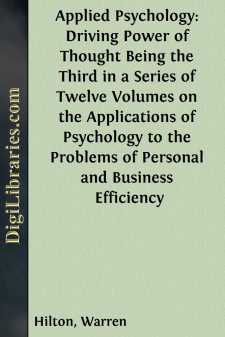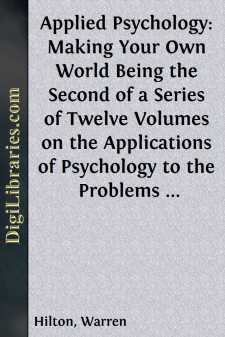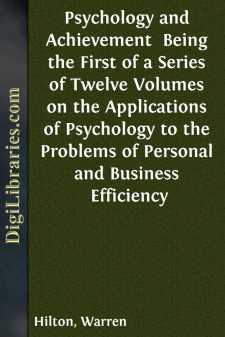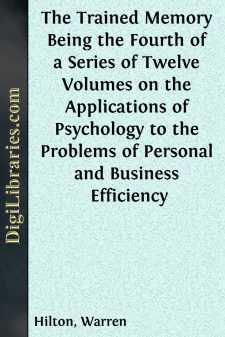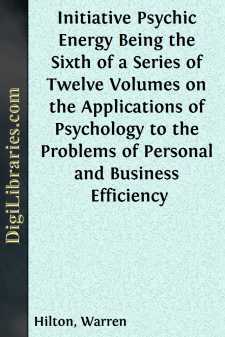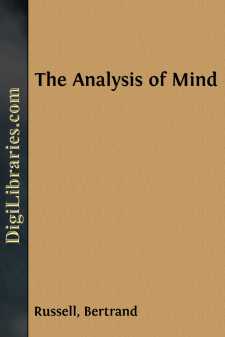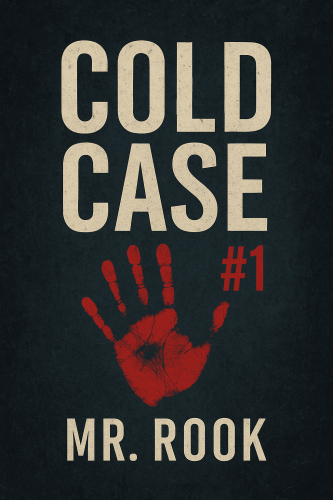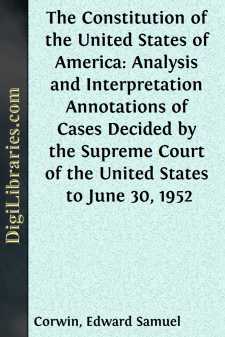Categories
- Antiques & Collectibles 13
- Architecture 36
- Art 48
- Bibles 22
- Biography & Autobiography 813
- Body, Mind & Spirit 142
- Business & Economics 28
- Children's Books 17
- Children's Fiction 14
- Computers 4
- Cooking 94
- Crafts & Hobbies 4
- Drama 346
- Education 46
- Family & Relationships 57
- Fiction 11829
- Games 19
- Gardening 17
- Health & Fitness 34
- History 1377
- House & Home 1
- Humor 147
- Juvenile Fiction 1873
- Juvenile Nonfiction 202
- Language Arts & Disciplines 88
- Law 16
- Literary Collections 686
- Literary Criticism 179
- Mathematics 13
- Medical 41
- Music 40
- Nature 179
- Non-Classifiable 1768
- Performing Arts 7
- Periodicals 1453
- Philosophy 64
- Photography 2
- Poetry 896
- Political Science 203
- Psychology 42
- Reference 154
- Religion 513
- Science 126
- Self-Help 84
- Social Science 81
- Sports & Recreation 34
- Study Aids 3
- Technology & Engineering 59
- Transportation 23
- Travel 463
- True Crime 29
Applied Psychology: Driving Power of Thought Being the Third in a Series of Twelve Volumes on the Applications of Psychology to the Problems of Personal and Business Efficiency
by: Warren Hilton
Description:
Excerpt
JUDICIAL MENTAL OPERATIONSVitalizing Influence of Certain IdeasOne of the greatest discoveries of modern times is the impellent energy of thought.
That every idea in consciousness is energizing and carries with it an impulse to some kind of muscular activity is a comparatively new but well-settled principle of psychology. That this principle could be made to serve practical ends seems never to have occurred to anyone until within the last few years.
The Work of Prince, Gerrish, Sidis, Janet, BinetCertain eminent pioneers in therapeutic psychology, such men as Prince, Gerrish, Sidis, Janet, Binet and other physician-scientists, have lately made practical use of the vitalizing influence of certain classes of ideas in the healing of disease.
We shall go farther than these men have gone and show you that the impellent energy of ideas is the means to all practical achievement and to all practical success.
Preceding books in this Course have taught that—
I. All human achievement comes about through some form of bodily activity.
II. All bodily activity is caused, controlled and directed by the mind.
III. The mind is the instrument you must employ for the accomplishment of any purpose.
The Two Types of ThoughtYou have learned that the fundamental processes of the mind are the Sense-Perceptive Process and the Judicial Process.
So far you have considered only the former—that is to say, sense-impressions and our perception of them. You have learned through an analysis of this process that the environment that prescribes your conduct and defines your career is wholly mental, the product of your own selective attention, and that it is capable of such deliberate molding and adjustment by you as will best promote your interests.
But the mere perception of sense-impressions, though a fundamental part of our mental life, is by no means the whole of it. The mind is also able to look at these perceptions, to assign them a meaning and to reflect upon them. These operations constitute what are called the Judicial Processes of the Mind.
The Judicial Processes of the Mind are of two kinds, so that, in the last analysis, there are, in addition to sense-perceptions, two, and only two, types of thought.
One of these types of thought is called a Causal Judgment and the other a Classifying Judgment.
[Pg 7]CAUSAL JUDGMENTS[Pg 8]Chapter II
CAUSAL JUDGMENTSA Causal Judgment interprets and explains sense-perceptions. For instance, the tiny baby's first vague notion that something, no knowing what, must have caused the impressions of warmth and whiteness and roundness and smoothness that accompany the arrival of its milk-bottle—this is a causal judgment.
Elementary ConclusionsThe very first conclusion that you form concerning any sensation that reaches you is that something produced it, though you may not be very clear as to just what that something is. The conclusions of the infant mind, for example, along this line must be decidedly vague and indefinite, probably going no further than to determine that the cause is either inside or outside of the body....


